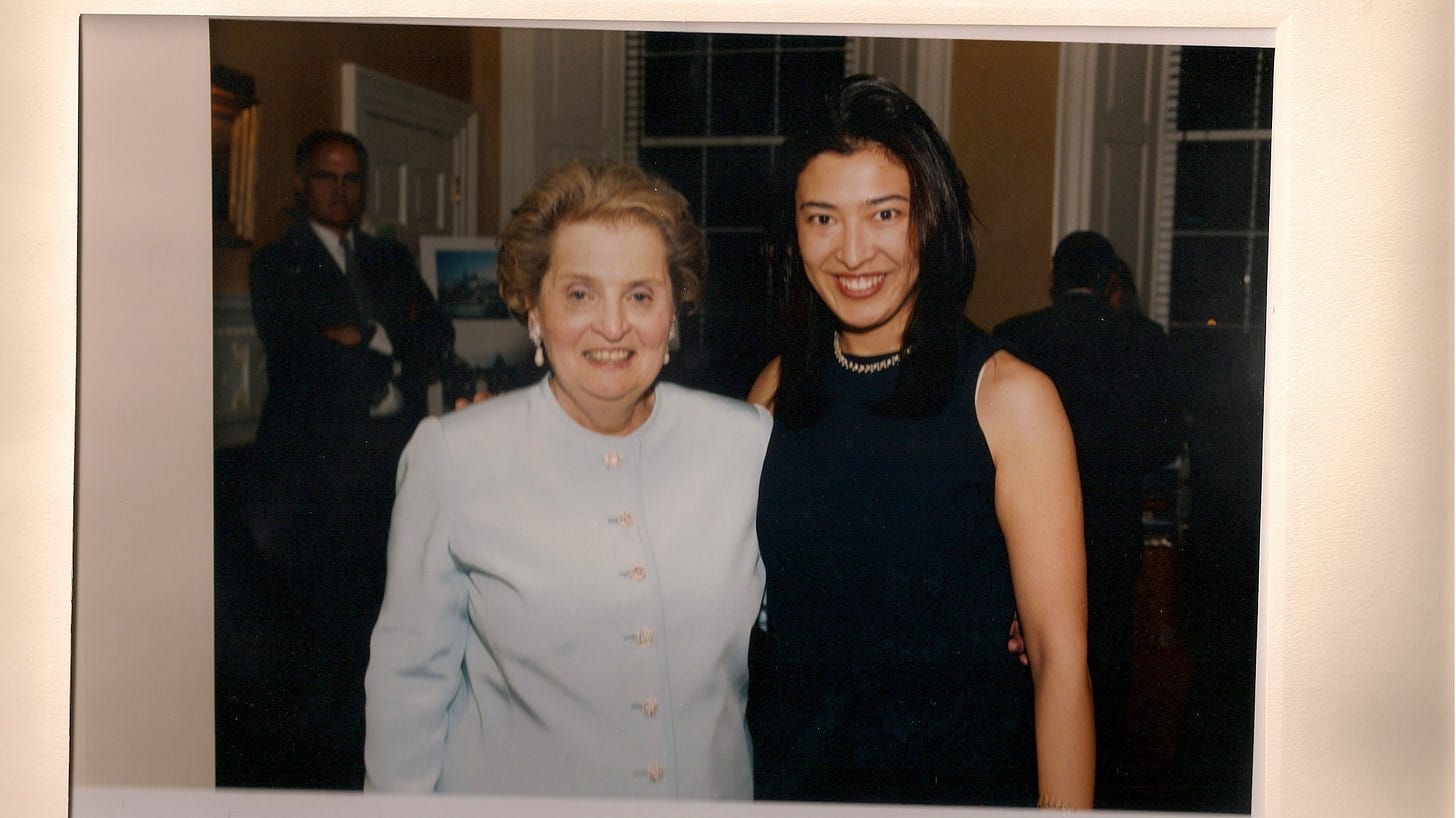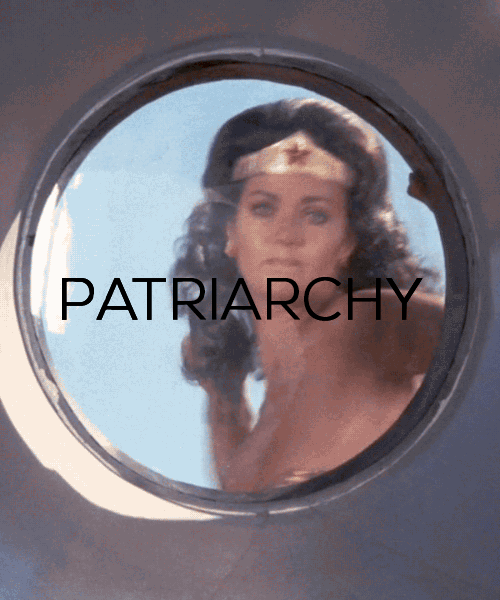What is Interruptrr?
There’s a long explainer here. In short, Interruptrr is a weekly roundup of what’s happening in the world. It is a curated newsletter, bring you links to op-eds and analysis from a wide range of media sources. You needn’t click on any link; we provide blurbs so that you get the gist. Our goal is to inform — and promote women. You’ll get Interruptrr on most Friday mornings (we take off in between Christmas and New Years and during August). It’s female expertise on the world—on foreign policy, development, economics, trade, international relations, multilateralism.
Okay, so what’s the long explanation?
In 2013, Adrienne LaFrance found that out of the 136 articles she wrote that past year, only 25 percent were female sources. In 2015, that number declined to 22 percent.
In 2018, Ed Yong, wrote about his effort to “fix the gender imbalance” in his stories. That is, he actively sought women to share their expertise. He notes that it wasn’t easy. Women, he writes, “face long-standing stereotypes about their intelligence”; “they receive less mentoring”; “they’re less likely to be invited to give talks”; and “they have to deal with significant levels of harassment and abuse.”
It is no wonder then that men are more quoted, more sought out to share their expertise, and dominate any given op-ed page.
In collaboration with Media Matters for America, we conducted an analysis of foreign policy guests on major news programs. The results read like a time capsule from the 1950s: In 2016, women made up just 24 percent of guests. Of trained experts networks call upon, they are even less than that. If you see a woman on cable news talking about foreign affairs or national security, she’s likely a reporter or news personality, not a trained expert or a diplomat.
That’s troubling. Worse, it’s dangerous.
Among the challenges that the world faces today: climate change, energy resources, extremism, epidemics, poverty, nuclear war, and cyber-attacks. Yet, somehow, we continue to underutilize a valuable resource to address these challenges: women.
Journalists are, for a number of reasons, not connecting with female experts for stories and perspectives on a number of topics. Among the reasons they’re not: perception. Female experts either feel that they aren’t as prominent or visible as their male counterparts – or are not seen in that way.
Interruptrr is focused on identifying, nourishing, and unleashing female expertise – in traditionally male dominated focus areas such as banking, cyber, defense, economics, engineering, entrepreneurship, finance, investing, national security, nuclear war, science, and technology.
This newsletter highlights experts on world events; experts who happen to be women.
Another newsletter 🙄
I hear you. We’re inundated with information and media. It’s hard to keep track. That’s the beauty of Interruptrr Weekly. My newsletter curates the latest analysis and insights, reporting, research on the headlines from a wide variety of new and old media sources.
Each week, Team Interruptrr brings you links to op-eds from different outlets, including the New York Times, Washington Post, FT, Guardian, The Hill. We comb through analysis in publications such as Foreign Policy, Foreign Affairs, The Conversation, Project Syndicate. We track the work of organizations such as The Council on Foreign Relations, Brookings, Chatham House, and Atlantic Council.
The result: You get an overview of the different perspectives and insights on the headlines across the globe. We summarize the latest from Africa, Asia, the Americas, Europe, the Middle East, and the US, while also keeping on top of the latest in climate change and technology.
It’s a one-stop-shop for understanding what’s happening in the world, from experts who happen to be women.
Wait, you include articles from everywhere?
We link to a wide variety of publications, but don’t republish articles. (Also, we wouldn’t be allowed to). What we do is provide a short summary of what’s in the op-ed, analysis, etc. A lot of these pieces are in publications are behind paywalls, which is understandable. Expertise doesn’t come for free.
Um, thanks, but why do you do this? 🤔
Honestly, sometimes I ask myself this too.
This newsletter started back in 2014 as a passion project, to prove that there are female experts IN EVERYTHING — and disprove everyone who proclaimed that “there are no women who are experts in that.”
Why are female experts important?
If all you have is a hammer, everything looks like a nail.
If all you have are white men as experts, everything looks like a matter for the military. Among the challenges that the world faces today are climate change, extremism, epidemics, poverty, and cyber-attacks. Those are not things that a tank or gun can resolve. They require different approaches and perspectives.
That is why female expertise is important. Women have the ability to bring in different approaches and perspectives to any given issue. More perspectives lead to more solutions.
How do you know female expertise isn’t already out there?
That’s easy, I just open up the op-ed page or turn on the TV. The majority of experts dishing on world events, whether it’s about China, US foreign policy, national security, nuclear war, the Middle East - are men. I have the numbers to prove it:
In 2015, in collaboration with Media Matters for America, released the gender breakdown of experts commenting on foreign policy and national security on prime-time cable and Sunday talk shows. We found that in 2015 only 24 percent of those experts were women. In following years, we have seen the number increase by a percentage point.
In 2018, we dived into the op-ed page. More specifically, four op-ed pages: The New York Times, Washington Post, Wall Street Journal, and the Los Angeles Times, across three one-year periods: 1996, 2006, and 2016. Our focus: foreign policy and national security pieces. These pieces spanned global affairs, national security, war, development, human rights, global trade and commerce, bilateral and multilateral issues.
Here’s what we found:
Here is what we found in 2020:
Women are not being tapped to share their expertise in foreign policy, national security, and economics.
Okay, but who are you?
I’m the daughter of blue collar immigrants to the United States, Brooklyn to be specific. I’ve been doubted, questioned, and overlooked — only to prove the naysayers wrong. I’ve always been motivated to contribute, solve problems, and add value wherever I think I can. That helped me secure positions at the State Department back in the 1990s, (where I worked for Madeleine Albright), become the spokesperson for the OSCE Mission to Bosnia-Herzegovina, work for the amazing non-profit Endeavor, write a book, From The Other Side of the World: Extraordinary Entrepreneurs, Unlikely Places. Today, I’m the Director of Bard College’s Globalization and International Program (BGIA), where I teach Feminist Foreign Policy and Foreign Policy in the Time of the Internet.
Why subscribe?
My newsletter will give you a comprehensive roundup of the week’s headlines and links from a wide variety of sources. You’ll see the tremendous number of female experts out there working on a multitude of issues. And that does indeed help dispel the notion that there “are no female experts in X.”
My newsletter is free, but it does take a lot of work to put together. If you’re able, please support it, giving whatever you can. I recently lost funding that helps pay interns.
Please subscribe — and spread the word about what we do. Let’s widen the conversation, expand perspectives, and smash the patriarchy.







